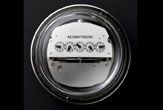National Broadband Plan Crucial For 'Smart' Power Grids

A federal plan to wire the entire United States with high-speed Internet access will be key to creating a nationwide "smart" power grid for reducing wasted electricity, according to the Federal Communications Commission (FCC).
FCC Chairman Julius Genachowski recently provided a preview of the National Purposes Update, a document that identifies opportunities for broadband deployment to improve health care, education, employment and energy efficiency.
In his speech, Chairman Genachowski asked regulators to imagine a connected America where millions of people are on a smart power grid, where electricity is only doled out as needed and drawn from the most efficient sources. Such a plan could potentially cut greenhouse gases from power plants by as much as 12 percent – the equivalent of taking 55 million cars off the road.
A national smart power grid will require widespread broadband connections to relay information between utility companies, smart appliances and consumers, Genachowski said.
Genachowski said the National Broadband Plan would include a recommendation to take the steps necessary to deploy broadband to accelerate a smart grid.
According to the 56-page update distributed by the FCC earlier this month, broadband will also be used to help consumers understand and manage their energy use. The report said that providing consumers with energy information could reduce consumption by 5 to 15 percent, representing a $60 to $180 annual savings per home. Today, less than 1 percent of customers have real-time access to their daily energy consumption data.
In October 2009, GE and Whirlpool Corporation announced the creation of the Smart Green Grid Initiative (SGGI), a collaborative effort aimed at demonstrating the role of smart grid technologies and practices in the achievement of climate change goals.
Sign up for the Live Science daily newsletter now
Get the world’s most fascinating discoveries delivered straight to your inbox.
Utility and technology companies that support SGGI include National Grid, Southern Company, AEP, Google, LG Electronics, Landis + Gyr, Echelon, Tendril, Ice Energy, Enspiria, eMeter and Itron.
"Smart appliances connected to the grid can schedule energy intensive activities to take place during lower energy usage periods like evenings and nights, when some renewable resources like wind are more likely to be available," Jim Campbell, President & CEO of GE Consumer & Industrial said in a statement.
With federal support, the speed of data transfer across the smart grid could be dramatically increased, delivering critical energy use feedback to constituents. And with the FCC's stated goal of 90 percent penetration rate of broadband in U.S. households, up from 65 percent today, more households could participate in the smart grid.
The FCC identified broadband as the key to U.S. growth. "I believe that broadband will be our enduring engine for creating jobs and growing our economy," said Genachowski, "For advancing a healthier, sustainable way of life."












